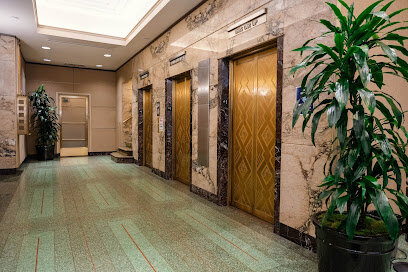Best Toxic Mold Lawyers in Portland
Share your needs with us, get contacted by law firms.
Free. Takes 2 min.
List of the best lawyers in Portland, United States
About Toxic Mold Law in Portland, United States
Toxic mold refers to certain types of fungal growths that can produce mycotoxins or trigger health problems in sensitive people. In Portland, Oregon, concerns about toxic mold commonly arise in homes, apartments, workplaces, and public buildings after water intrusion events such as floods, roof leaks, plumbing failures, or poor building maintenance. There is no single federal or state law that specifically regulates all mold. Instead, mold-related legal claims draw on several areas of law including landlord-tenant habitability rules, consumer-protection laws, construction-defect claims, insurance law, personal-injury law, and local building and health codes.
Because mold can affect both property and health, legal issues are often complex. Cases frequently require input from medical providers, certified mold or indoor-air specialists, contractors, and legal counsel to evaluate exposure, causation, damages, and applicable legal remedies.
Why You May Need a Lawyer
People affected by mold in Portland often need legal help for several reasons:
- Habitability and landlord-tenant disputes: If you rent and your unit develops mold because of leaks or inadequate repairs, a lawyer can help enforce landlord obligations, negotiate repairs, seek rent reductions, or pursue relocation expenses.
- Insurance denial or underpayment: Homeowners or renters insurance claims for mold can be denied or limited. A lawyer can review your policy, challenge denials, and handle bad-faith claims when insurers fail to meet their obligations.
- Health-related claims: When occupants claim health injuries from mold exposure, an attorney helps evaluate medical records, obtain expert opinions on causation, and determine whether to pursue a personal-injury claim.
- Construction and contractor disputes: If mold results from faulty construction, inadequate waterproofing, or poor repairs, legal action against builders, contractors, or manufacturers may be possible. Lawyers can pursue construction-defect claims, warranty claims, or licensing complaints against contractors.
- Property damage and remediation disputes: When mold causes or aggravates property damage, owners may need help recovering remediation costs, replacement or repair costs, and related losses.
- Class actions and complex litigation: In multi-unit buildings or developments with widespread mold problems, an attorney experienced in complex litigation or class actions may be needed to coordinate claims for many affected people.
Local Laws Overview
Key legal frameworks and local bodies that matter for mold issues in Portland include:
- Landlord-tenant law and habitability: Oregon law requires landlords to maintain rental units in a habitable condition. Habitability rules cover issues that materially affect health and safety, such as persistent water intrusion and mold. Portland tenants also have local resources such as the Portland Housing Bureau and tenant-rights programs to report unsafe housing and seek assistance.
- Building and housing codes: Portland Building Code and local housing codes establish standards for construction, repairs, and safety. Code enforcement can require property owners to fix conditions that cause mold, such as roof leaks or inadequate ventilation.
- Contractor licensing and standards: Contractors working in Oregon must follow state rules and may be regulated by bodies such as the Oregon Construction Contractors Board. Consumer complaints about contractor work or failure to remediate mold properly can be filed with licensing authorities.
- Consumer protection and fraud laws: The Oregon Department of Justice enforces consumer-protection laws. If mold problems arise from undisclosed defects, fraudulent representations by sellers or contractors, or deceptive business practices, consumer-protection claims may be available.
- Insurance regulation: Insurance contracts are governed by state law and by rules enforced by state insurance regulators. Insurance coverage for mold varies significantly by policy and insurer. Policies may limit or exclude mold, impose sublimits, or require prompt notice and mitigation.
- Health and environmental guidance: Public health agencies do not typically set legal thresholds for mold, but they issue guidance on assessment, cleanup, and health risks. Local health departments and state agencies may inspect public buildings and provide recommendations.
Frequently Asked Questions
What should I do first if I find mold in my home or apartment?
Take immediate practical steps: document the problem with photos and dated notes, limit exposure by avoiding the area if mold is heavy, notify your landlord or property manager in writing if you rent, and arrange for prompt assessment and remediation. For health concerns, see your medical provider. Preserve all communications, repair estimates, invoices, and insurance notices.
How do I know if mold is making me or my family sick?
Mold can cause allergy-like symptoms, respiratory irritation, or worsen asthma in sensitive people. There is no single test that proves mold caused a health condition for every individual. Medical records, symptom timelines, specialist evaluations, and, where appropriate, environmental testing can help build a medical-legal picture. Consult your doctor and keep detailed notes of symptoms and exposure history.
Can my landlord be held responsible for mold in my rental unit?
Possibly. Landlords are generally required to maintain rental units in habitable condition. If mold results from a landlord's failure to repair leaks, provide adequate ventilation, or address chronic moisture problems, tenants may have remedies such as demanding repairs, seeking rent reductions, pursuing damages, or using other statutory remedies. Procedures and risks vary, so consult a lawyer or a local tenant-rights organization before withholding rent or taking self-help measures.
Does homeowners insurance cover mold remediation?
It depends on your policy and the cause of the mold. Many policies cover mold that results from a covered peril, such as sudden water damage, but exclude or limit coverage for mold caused by long-term neglect or maintenance issues. There may be sublimits, high deductibles, or exclusions. Always report potential claims promptly and keep records of communications and mitigation steps. Talk with an attorney or insurance advocate if your claim is denied or underpaid.
Should I get professional testing before remediation?
Professional testing can help document the presence and type of mold, identify moisture sources, and guide remediation. However, in many cases visible mold and evidence of water intrusion are sufficient to justify cleanup without elaborate testing. Legal claims often depend more on documentation of conditions, repair delays, and impacts than on species identification. If you plan to use testing as part of legal evidence, consult an attorney for guidance on appropriate protocols and qualified professionals.
How long do I have to bring a claim related to mold exposure or property damage?
Time limits, known as statutes of limitations, vary by claim type. Personal-injury claims and property-damage claims often have different deadlines. Common civil deadlines can be measured in years, and delays in acting can bar your claim. Because the timing depends on the nature of the claim and when you discovered the harm, consult an attorney promptly to preserve legal options.
Can I sue a contractor or builder for mold?
Yes, if mold results from faulty workmanship, construction defects, inadequate waterproofing, or a breach of warranty, you may have claims against contractors, builders, or product manufacturers. Claims can include breach of contract, negligence, breach of warranty, and consumer-protection violations. Successful claims generally require documentation, expert opinions on causation, and proof of damages.
What kinds of damages can I recover in a mold case?
Possible recoverable losses include the cost of remediation and repairs, replacement of damaged personal property, medical expenses for documented health effects, temporary relocation costs, diminution in property value, lost rental income, and in limited circumstances, non-economic damages. Remedies depend on the legal theory, available evidence, and whether the defendant is insured or financially responsible.
Are there low-cost or free legal help options in Portland for mold cases?
Yes. Legal aid organizations, tenant-rights groups, and bar association lawyer-referral services can help you find low-cost or pro bono representation. Resources vary by income and case type. Even if you do not qualify for full legal aid, some attorneys offer limited-scope representation or initial consultations on a reduced-fee basis.
When should I hire an attorney instead of handling the matter myself?
Consider hiring an attorney if the mold problem is widespread, causes health issues, involves substantial property damage, raises complex insurance coverage questions, involves construction defects or contractor disputes, or when the other party refuses to address the problem. Also consult an attorney before taking actions that could affect your legal rights, such as withholding rent, moving out permanently, or signing release agreements.
Additional Resources
Below are local and state organizations and agencies that can provide guidance, inspections, or complaint assistance for mold-related issues:
- Oregon Health Authority - indoor air and public health guidance
- Multnomah County Health Department - local public-health resources
- Portland Housing Bureau - tenant-landlord resources and code enforcement
- Oregon Department of Justice - Consumer Protection Section
- Oregon Construction Contractors Board - contractor licensing and complaints
- Oregon Department of Environmental Quality - environmental concerns and indoor air guidance
- Centers for Disease Control and Prevention - health information on mold exposure
- Environmental Protection Agency - mold assessment and cleanup guidance
- Legal Aid Services of Oregon and local tenant-rights organizations - free or low-cost legal help
- Oregon State Bar lawyer-referral services - assistance finding an attorney experienced in mold, landlord-tenant, insurance, or construction law
Next Steps
If you are dealing with toxic mold in Portland and think you may need legal assistance, follow these steps to protect your rights and position your case effectively:
- Document everything: take dated photos, videos, and written notes of mold, moisture sources, communications with landlords, contractors, or insurers, and any health symptoms you or household members experience.
- Seek medical attention: get medical documentation if you or family members have symptoms that may be related to mold exposure. Keep records of visits, diagnoses, and treatment.
- Notify the responsible party in writing: if you rent, send a written notice to your landlord describing the problem and requesting prompt remediation. If a contractor or seller is involved, preserve written communications.
- Mitigate further damage: take reasonable steps to limit exposure and further property damage, such as drying out wet areas and following basic cleanup guidance. Keep receipts for mitigation and temporary housing.
- Preserve evidence: do not discard contaminated materials until you have photographic documentation or have been advised by your attorney or an expert.
- Review your insurance: notify your insurer promptly about possible claims and keep copies of all correspondence. Do not sign settlement or release documents without legal review.
- Consult a lawyer: seek an attorney experienced in mold-related cases to evaluate legal options, applicable deadlines, and the evidence you will need. If cost is a concern, contact local legal aid organizations or bar referral services for help locating affordable counsel.
Dealing with mold can be stressful and technically complex. Early documentation, timely notification, and guidance from medical, remediation, and legal professionals improve your chances of resolving the problem and obtaining appropriate remedies.
Lawzana helps you find the best lawyers and law firms in Portland through a curated and pre-screened list of qualified legal professionals. Our platform offers rankings and detailed profiles of attorneys and law firms, allowing you to compare based on practice areas, including Toxic Mold, experience, and client feedback.
Each profile includes a description of the firm's areas of practice, client reviews, team members and partners, year of establishment, spoken languages, office locations, contact information, social media presence, and any published articles or resources. Most firms on our platform speak English and are experienced in both local and international legal matters.
Get a quote from top-rated law firms in Portland, United States — quickly, securely, and without unnecessary hassle.
Disclaimer:
The information provided on this page is for general informational purposes only and does not constitute legal advice. While we strive to ensure the accuracy and relevance of the content, legal information may change over time, and interpretations of the law can vary. You should always consult with a qualified legal professional for advice specific to your situation.
We disclaim all liability for actions taken or not taken based on the content of this page. If you believe any information is incorrect or outdated, please contact us, and we will review and update it where appropriate.










